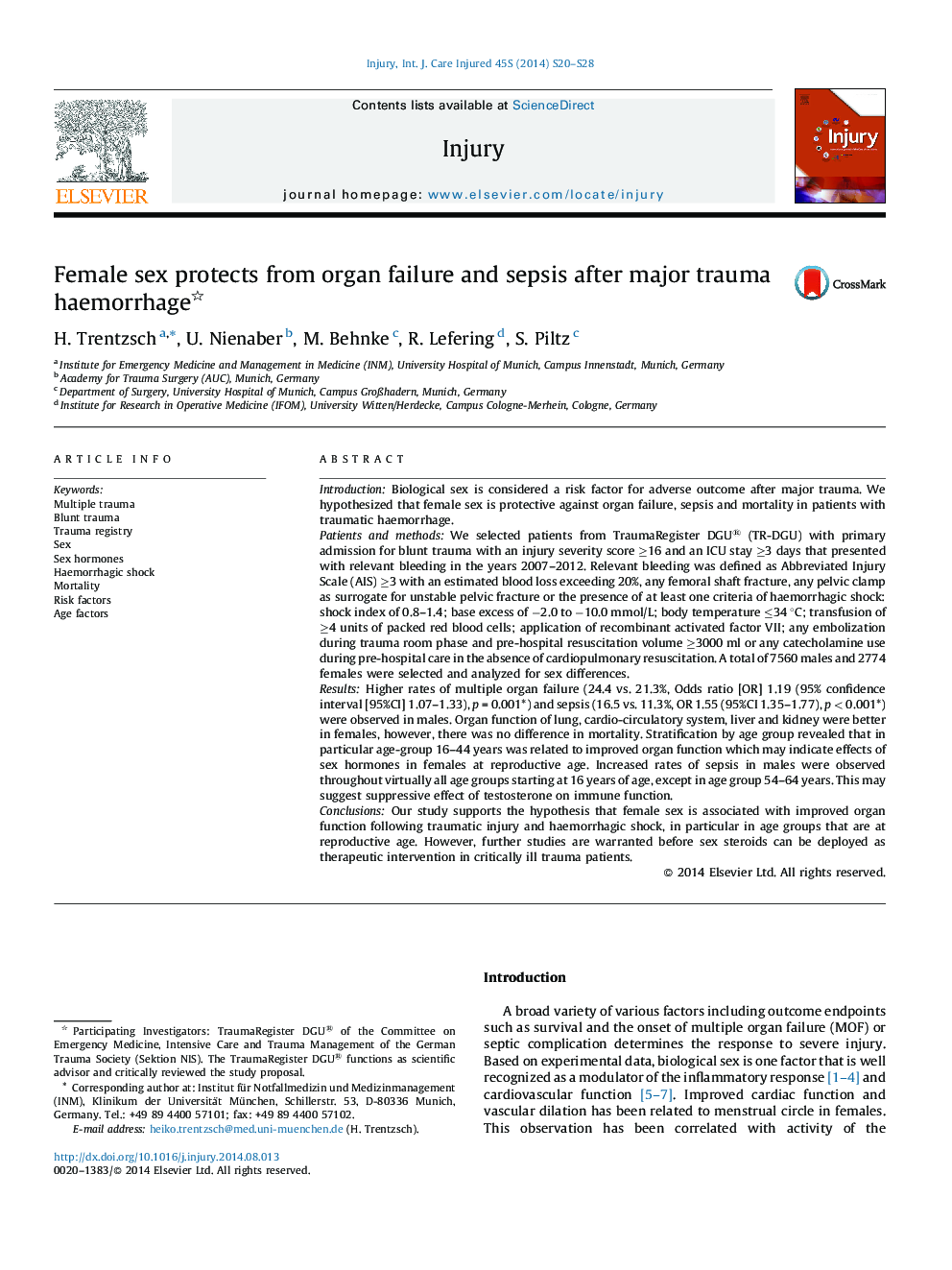| کد مقاله | کد نشریه | سال انتشار | مقاله انگلیسی | نسخه تمام متن |
|---|---|---|---|---|
| 3239900 | 1206024 | 2014 | 9 صفحه PDF | دانلود رایگان |
IntroductionBiological sex is considered a risk factor for adverse outcome after major trauma. We hypothesized that female sex is protective against organ failure, sepsis and mortality in patients with traumatic haemorrhage.Patients and methodsWe selected patients from TraumaRegister DGU® (TR-DGU) with primary admission for blunt trauma with an injury severity score ≥16 and an ICU stay ≥3 days that presented with relevant bleeding in the years 2007–2012. Relevant bleeding was defined as Abbreviated Injury Scale (AIS) ≥3 with an estimated blood loss exceeding 20%, any femoral shaft fracture, any pelvic clamp as surrogate for unstable pelvic fracture or the presence of at least one criteria of haemorrhagic shock: shock index of 0.8–1.4; base excess of −2.0 to −10.0 mmol/L; body temperature ≤34 °C; transfusion of ≥4 units of packed red blood cells; application of recombinant activated factor VII; any embolization during trauma room phase and pre-hospital resuscitation volume ≥3000 ml or any catecholamine use during pre-hospital care in the absence of cardiopulmonary resuscitation. A total of 7560 males and 2774 females were selected and analyzed for sex differences.ResultsHigher rates of multiple organ failure (24.4 vs. 21.3%, Odds ratio [OR] 1.19 (95% confidence interval [95%CI] 1.07–1.33), p = 0.001*) and sepsis (16.5 vs. 11.3%, OR 1.55 (95%CI 1.35–1.77), p < 0.001*) were observed in males. Organ function of lung, cardio-circulatory system, liver and kidney were better in females, however, there was no difference in mortality. Stratification by age group revealed that in particular age-group 16–44 years was related to improved organ function which may indicate effects of sex hormones in females at reproductive age. Increased rates of sepsis in males were observed throughout virtually all age groups starting at 16 years of age, except in age group 54–64 years. This may suggest suppressive effect of testosterone on immune function.ConclusionsOur study supports the hypothesis that female sex is associated with improved organ function following traumatic injury and haemorrhagic shock, in particular in age groups that are at reproductive age. However, further studies are warranted before sex steroids can be deployed as therapeutic intervention in critically ill trauma patients.
Journal: Injury - Volume 45, Supplement 3, October 2014, Pages S20–S28
